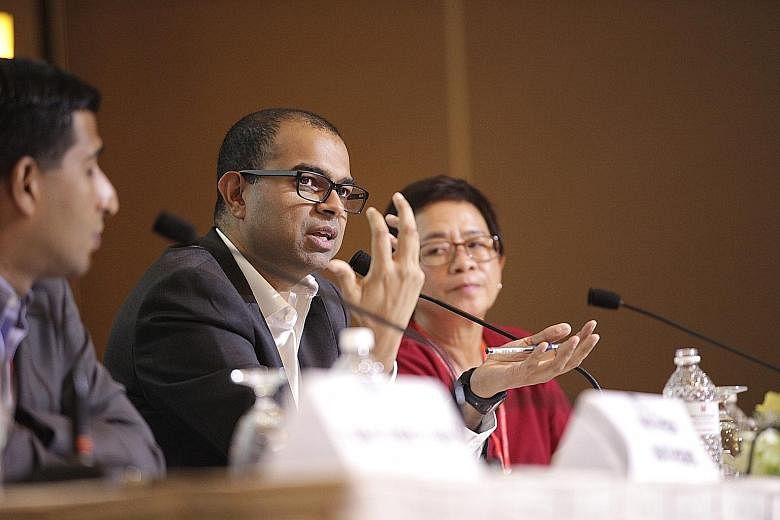Singaporeans need to move away from knee-jerk punishments and public shaming of individuals who make racist or xenophobic comments online, several academics said yesterday.
While such people should be called out, demonising them, reporting to the police as the first response and asking for quick solutions are not fruitful, they added.
The reason is that apologies made under such pressure are very likely to be insincere.
A better approach is to confront the individual in a civil way, National University of Singapore (NUS) adjunct senior fellow Lai Ah Eng said at a conference on managing social and cultural diversity in Singapore.
"I met a retired teacher, who every morning when she goes on the Internet... reasonably and civilly answers comments that she disagrees with," Dr Lai said.
"People should take it up as a new habit... instead of angrily saying your piece and then shutting down the computer."
But even as individuals like Dr Lai's teacher friend step up to the plate, the Government cannot take a step back, said Minister of State for Education and Communications and Information Janil Puthucheary, a panellist.
The way the Government proactively manages diversity has led to Singapore's success, and should not be thrown out, he argued.
"Looking for opportunities for sacrifice and compromise, rather than a process of demanding gains - that's a principled approach that's served us well," he added.
At the conference, attended by 200 scholars and civil servants and organised by the Institute of Policy Studies (IPS), 15 panellists discussed diversities in relation to race, religion, language and values.
Dr Lai recounted six incidents of public outrage against racism or xenophobia from 2011 to 2012. For instance, Chinese national scholarship holder Sun Xu had his scholarship revoked after netizens were outraged at his comparing some Singaporeans' behaviour to that of dogs, on his Weibo account in 2012.
A former NTUC assistant director, Ms Amy Cheong, lost her job after drawing flak over her expletive-laden Facebook rant against Malay traditional weddings.
Episodes like these underscore the importance of knowing how to manage differences in a mature manner, said the academics.
This is because as Singapore's population evolves, new fault lines may open up between new citizens and long-time Singaporeans, the rich and the poor, and conservatives and liberals, they added.
NUS sociologist Paulin Straughan criticised some people's tendency to take photos or videos of unacceptable behaviour and post them online for other netizens to condemn - while "hiding behind anonymity".
She said: "That's not being a community, that's just being a rat... We need to take ourselves beyond that. How do we be busybodies in a constructive manner?"
Learning to do this is crucial for Singapore as it is a small country and cannot afford to fragment owing to differences, she added.
Singapore also needs to watch out for how inequalities can become entrenched via the education system.
Upper- and middle-class parents, anxious to give their children a strong head start in life, pay for tuition and enrichment classes.
Children of poorer parents who cannot afford such privileges may fall behind, said NUS sociologist Tan Ern Ser. But he argued that it is better to "take care of the weak, rather than undermine the strong".
Being for or against lesbian, gay, bisexual and transgender rights is another schism that has made the headlines in recent years.
The world views of people in the two camps may be fundamentally opposed, said independent political scientist Johannis Abdul Aziz, who conducted focus-group sessions on the topic earlier this year.
But both sides reject violence and hate speech, he added.
This ability to "disagree agreeably" will become important as more Singaporeans get involved in political debates and even party politics, said IPS deputy director of research Gillian Koh.


